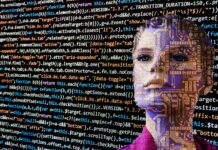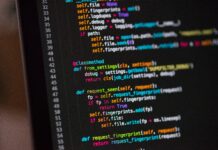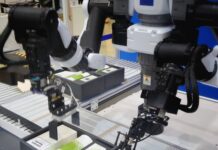From debit cards to investing in stocks, finance affects almost everyone and in the way in which finance is handled has changed dramatically in the last 2 decades. Artificial Intelligence (AI) is making an impact on every aspect of finance including how we trade and how companies provide financial services. Read on to find out how.
Fraud Detection
With the increasing variety of payment methods, fraud detection is becoming a greater problem. It is becoming harder to handle large amounts of data as well as dealing with hackers who are continuously finding weaknesses in a system. Fraud detection done manually is more susceptible to mistakes as humans need to gather, categorize and analyse data. This can be time consuming ,resource heavy and naturally increase the chance of missing a possible fraud.
One solution to this is through data extraction. Data extraction is where a machine learning algorithm is trained on some of the data in order to be able to recognise fraud transactions and normal transactions. Algorithms can be trained to analyse past transactions and understand a person’s spending patterns enabling them to point out odd transactions, unusual spending patterns and even different locations. Compared to humans machine learning algorithms can identify patterns much more quickly in real time and can easily be scaled to deal with large volumes of cases. Moreover, algorithms converts data heavy information into a simple format that suggests actions and steps needed to be implemented.
Algorithmic Trading and High-Frequency Trading
Algorithmic Trading is the use of algorithms to carry out trades independently and carry out programs on a set of rules; such as time that is on behalf of a trader. Machine learning can automate the processes needed for trading well and even opens up the opportunity of trading in a wider market since algorithms can analyse multiple markets simultaneously. This provides an investor with more options of where they would like to bid their money.
High-Frequency Trading (HFT) is a form of complex algorithmic trading where huge numbers of orders are carried out in a few seconds; allowing big sums of money to be invested within a few seconds. HFTs contain an order book that contains the most up to date information about the market . When a person places a bid to buy their stocks, they are placed in an order depending on how high their bid is compared to everyone else’s. Then a person can price match someone’s offer or vice versa with the chance of a transaction going through . AI makes it possible to provide investors with minute by minute market changes that only exist for a small period of time and is able to place the best possible bids for us.
AI chatbots in financial services
The use of chatbots has become popular in the last few years as it is improving customer experience of a company. Chatbots can also cut a company’s cost as they do not need humans to provide these services. By analysing someone’s preferences such as their location,age and spending habits chatbots have the potential to personalize a customer’s needs with the use of predictive analytics.
Chatbots can significantly reduce waiting times since they can solve common problems immediatley and can have the potential of saving up to 4 minutes per chatbot enquiry compared to a typical phone-in call centre enquiry. Whilst humans are only able to work for a certain period of time, chat bots are available 24 hours a day, every day, allowing more people to access financial services whenever they need. For a company, chatbots can increase customer loyalty since customer’s know they can receive help at any time.
Natwest bank is using AI driven technology to provide a new way customer’s can interact with the bank. Currently, Natwest Cora is a text-based chatbot which can answer 200 types of inquiries. The bot executes 100, 000 conversations with bank customers per month. The company has also announced a digital human form of Cora which could be capable of responding to simple questions that have been raised by customers. This means that Cora will be trained to recognise human facial expressions and listen to responses. A digital human version of Cora will have a positive impact since those who struggle with sight will be able to have a more comfortable experience when banking.
Robo-advisors
A Robo-advisor is a digital investment platform that uses algorithm operated systems in order to provide financial advice and services with minimal human intervention. Robo-advisors collect information such as current financial situation, investments and investing goals. This information can be collected in many different ways including surveys. The data is collected and analysed allowing the algorithm to offer advice and provide a range of investment options based on your goals and risk tolerance. There are also algorithms in place to monitor and rebalance your portfolio as the market changes.
Robo-advisors are available at a lower cost compared to human advisors, providing 24/7 advice as well as creating a more comfortable experience for an investor as they can do it from home. Furthermore,algorithms can create the best portfolio of an investor, ensuring the investor can get the big they want. However, the machine learning algorithm does have a limit to how much it can personalize someone’s financial plan. This is because machine learning algorithms can only learn from the data that they are given; limiting the different number of ways it can provide advice.
Conclusion
From individuals to large corporate companies artificial intelligence and machine learning are changing the way we invest and bank. There are many positives including 24 hours access to online services and lower costs for businesses. However, the possibilities that machine learning offers can often have its limitations since we don’t know how algorithms will react to unseen situations. Nevertheless, Artificial intelligence has the potential to help us make better financial decisions and help us become smarter with our money.



















